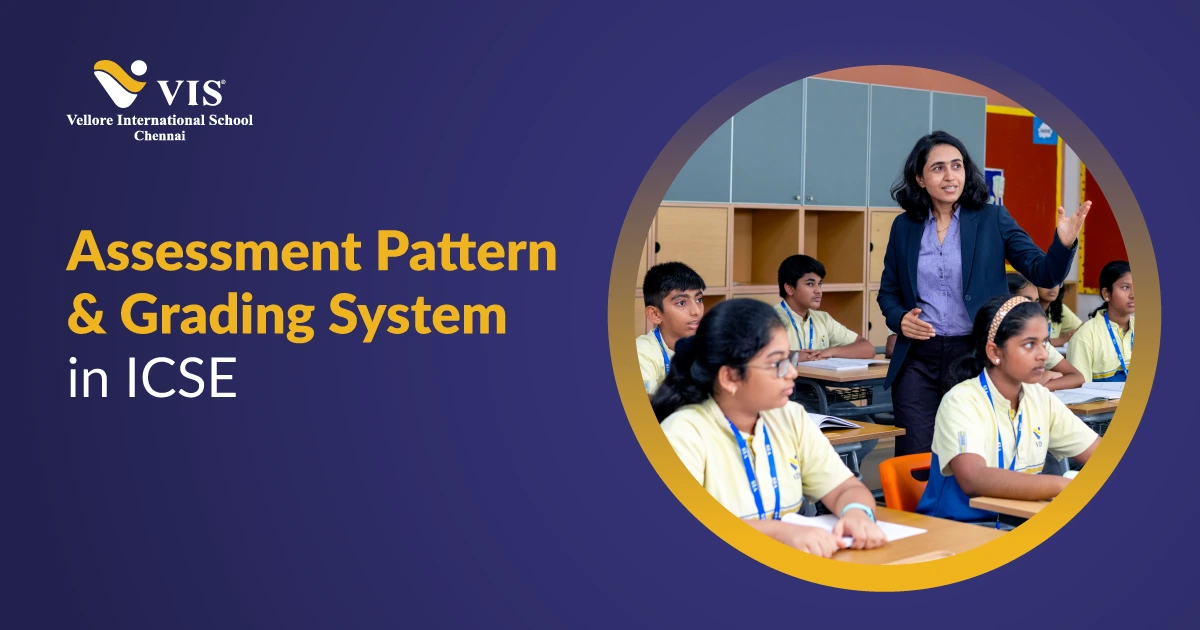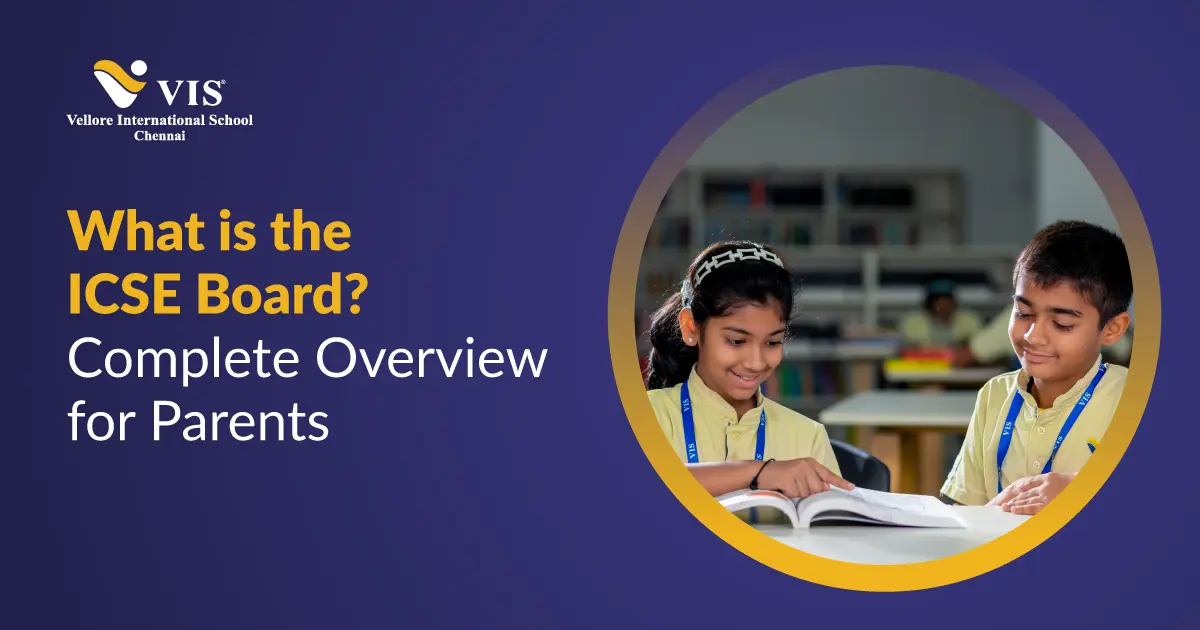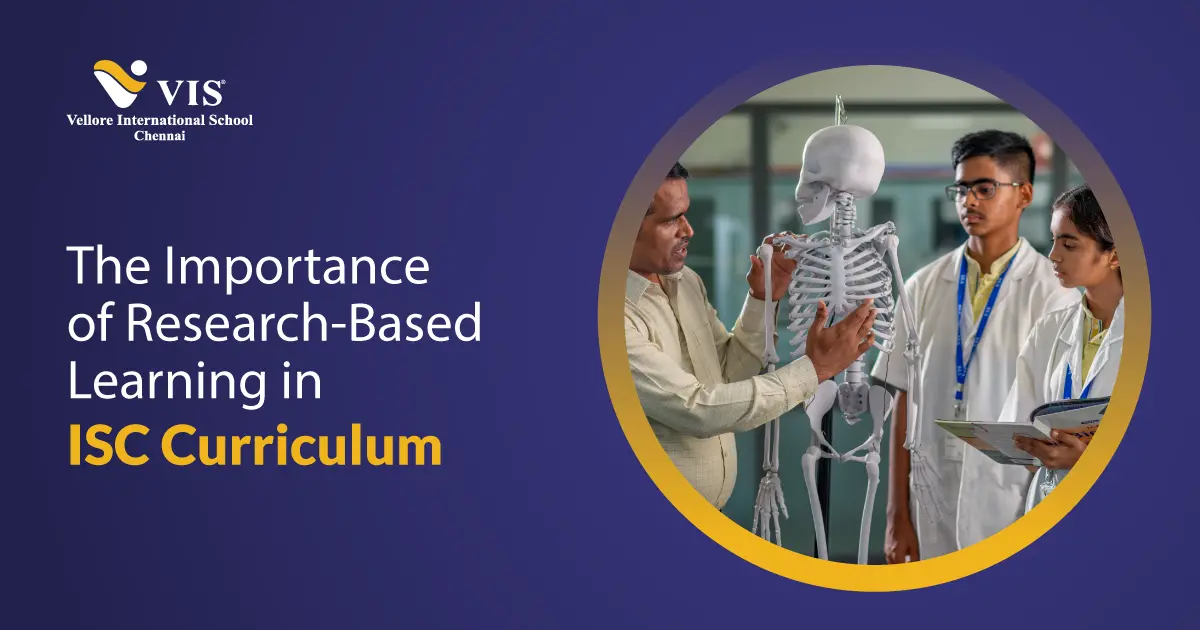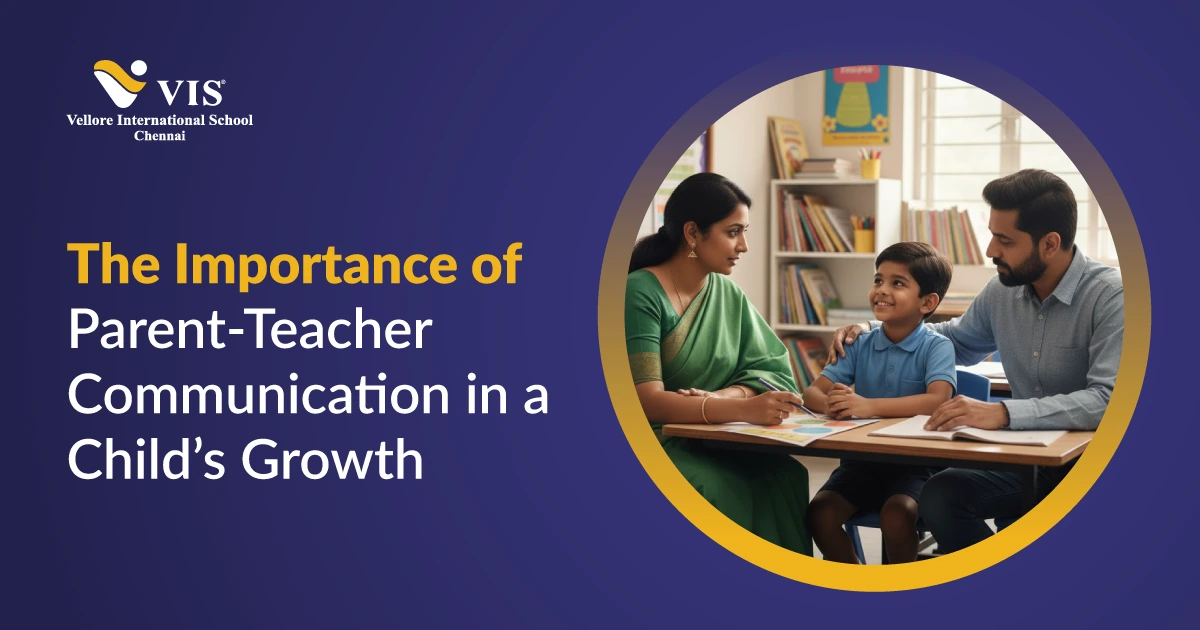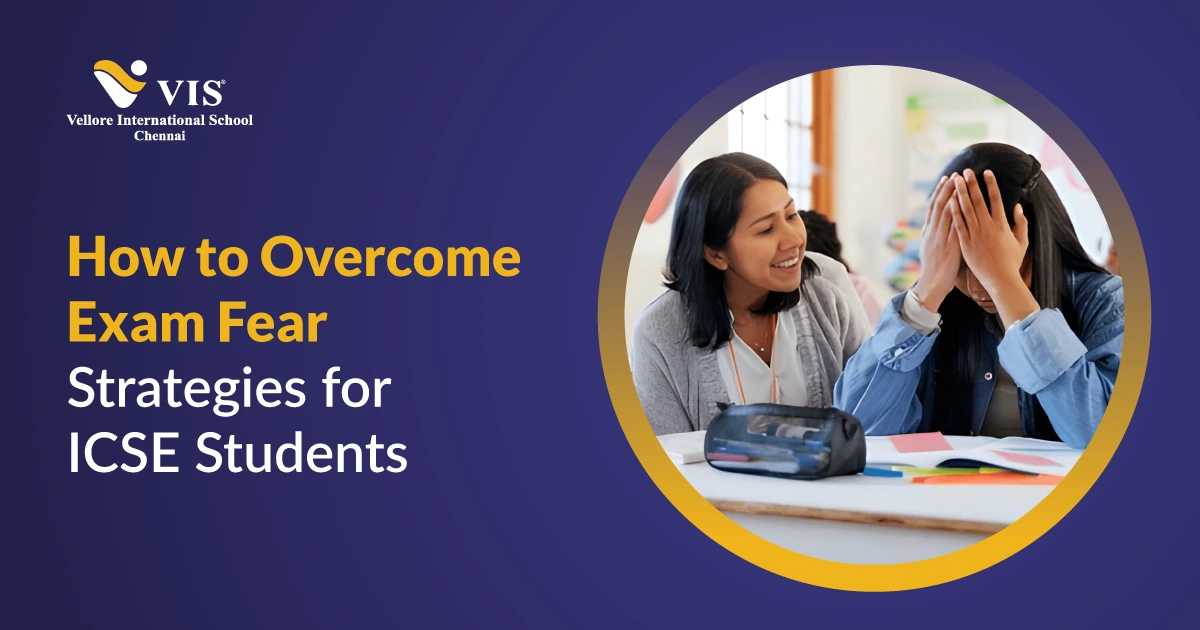Introduction
India offers various curriculums for parents to choose from for their children. Among these, the Indian Certificate of Secondary Education (ICSE) curriculum differs in its focus on a well-rounded, complete education.
As an esteemed institution committed to fostering academic excellence, understanding the benefits of the ICSE curriculum is essential for parents to make choices about their children’s education.
This blog will analyse the advantages of opting for ICSE and showcase how it can significantly impact a child’s developmental journey.
Also Check – How To Prepare For ICSE Board Exams: Tips And Strategies
Top 9 Benefits of Choosing an ICSE Curriculum

Are you confused about the ICSE board or finding the right ICSE school for your children? No worries; the upcoming benefits replicate the actual impact on your child’s future.
1. Overall Development
One of the primary benefits of the ICSE curriculum is its focus on overall development. Unlike other examination systems, particularly those that focus purely on rote learning, ICSE is designed to develop students intellectually, physically, and emotionally. The curriculum includes arts, sports, and other extracurricular activities, ensuring that children grow into well-rounded individuals capable of succeeding in various aspects of life.
Educational Philosophy
ICSE’s educational philosophy promotes the idea that academic success is combined with emotional intelligence and physical health, thus preparing students for the complexities of modern life.
2. Strong Focus on English Language Skills
With English becoming a global lingua franca, proficiency in the language is more crucial than ever. The ICSE curriculum highlights English language skills, making it a strong foundation for students eager to excel in this essential language.
Why This Matters
Building proficiency in English benefits students academically and socially, equipping them to communicate effectively in diverse environments. ICSE’s emphasis on English increases confidence and opens opportunities for international exposure in higher education and career prospects.
3. Complete and Various Curriculum
The benefits of the ICSE curriculum include a broad and varied range of subjects, allowing students to explore multiple academic interests. The curriculum consists of traditional subjects like mathematics, science, and the arts, environmental education, and a second language.
Flexibility in Subject Choice
This flexibility allows students to tailor their education according to their interests and strengths, paving the way for informed decisions regarding future education paths. Unlike strict educational systems, ICSE encourages children to discover and develop their passions.
4. Focus on Critical Thinking and Analytical Skills
The ICSE curriculum encourages students to think critically and develop analytical skills. This approach enables learners to go beyond memorising facts and figures, fostering inquiry and questioning.
Development of Problem-Solving Abilities
Through project work and hands-on activities, students learn how to analyse situations and apply knowledge to real-world problems. This skill set is invaluable for success in higher education and life beyond school.
| Did You Know?The Government of India released articles on the passion for environmental education: ICSE includes environmental science in its curriculum, raising awareness about ecological issues and fostering responsible citizenship among students. |
5. Continuous Evaluation and Comprehensive Assessment
Another significant advantage of the ICSE curriculum is its focus on continuous evaluation and complete assessment techniques. Unlike traditional exam-centric systems, ICSE employs various assessment methods, including project work, practical exams, and constant feedback.
Benefits of Continuous Assessment
- Reduced Stress: This system reduces the pressure associated with a single end-of-year exam, allowing children to focus on consistent performance over time.
- Individualised Attention: Progressive assessments enable teachers to identify students’ strengths and weaknesses, allowing for the best support to foster improvement.
6. Fundamentals of Lifelong Learning
The interactive and engaging nature of the ICSE curriculum promotes a culture of lifelong learning. By encouraging curiosity and a love for knowledge, ICSE helps students develop habits that will benefit them throughout their lives.
Motivation Towards Education
This inherent motivation can lead to a positive attitude towards learning, reducing the chances of disengagement as students progress to higher education or enter the workforce.
7. Global Recognition
The benefits of the ICSE curriculum extend beyond India, as this certification is recognised globally. For parents considering international options for higher education, ICSE provides a strong foundation that many universities worldwide acknowledge.
Opportunities for Further Studies
This global recognition encourages students to consider pursuing studies abroad, gaining pathways to different cultures and educational systems, and, ultimately, enhancing their prospects for future employment.
8. Strong Parent-Teacher Relationships
ICSE schools typically foster strong relationships among parents and teachers, contributing to a positive learning environment. Open communication is a hallmark of ICSE institutions, allowing parents to remain informed about their child’s progress.
Involvement in the Learning Process
This collaborative approach enables parents to engage actively in their child’s education, facilitating a more supportive atmosphere for learning and development.
9. Preparation for Real-World Challenges
The ICSE curriculum provides students with skills that are not just exam-related but essential for facing real-world challenges. Critical thinking, effective communication, and collaboration skills are embedded into the curriculum.
Building Resilience
By emphasising the importance of character education alongside academics, ICSE schools prepare students to navigate life’s challenges with resilience and adaptability.
VIS: Master Smarter Study, Achieve Greater Success
Choosing the ICSE curriculum can profoundly impact your child’s educational journey. The curriculum offers numerous benefits that extend well beyond the classroom.
At Vista International School, we are dedicated to providing a nurturing environment that fosters excellence in all aspects of student development. By advancing the modern advanced level of education, strong language skills, critical thinking, and individual passions, ICSE prepares students for lifelong success.
Conclusion
Hope you have got some ideas about why to choose the ICSE board for your children’s education. Most people will consider this board very strict, and when advanced syllabuses are taught to our kids, they may feel stressed and not like that.
Understanding the core knowledge and its basic concepts is taught during the junior-level grades. Remember, easy work can be replaced soon, but toughness cannot be replaced. Still, demand will increase for that.
FAQs
1. What makes the ICSE curriculum different from other education systems?
Unlike other systems prioritising rote learning, ICSE focuses on the latest developments, encourages critical thinking, and offers a broad range of subjects.
2. How does the ICSE curriculum improve language skills?
The ICSE curriculum places significant importance on English language proficiency through extensive study and practical application, preparing students for global communication.
3. Is the ICSE certification recognised internationally?
Yes, ICSE is recognised globally, providing students with valuable opportunities for higher education in India and abroad.
4. How does ICSE evaluate student performance?
ICSE uses a continuous assessment approach, allowing for various evaluation techniques, such as project work, practical tests, and regular feedback.
5. Are there opportunities for extracurricular activities in ICSE schools?
ICSE schools typically encourage participation in extracurricular activities, arts, and sports to support recent development alongside academics.


